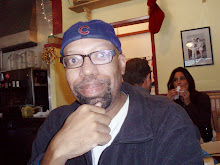Re: Yesterday's House committee hearings regarding the use of steroids in Major League Baseball - can the world get those 11-plus hours of its existence back?
I mean, what was really accomplished by what came within a bloop single of becoming a show trial, in which the entire baseball operation was feeling the heat? Oh, we learned that steroids are bad! What a revelation. While this government is fighting a war, trying to figure out how it will pay its bills and haggling over serious issues such as health care and Social Security, several of its elected representatives spend their St. Patrick's Day getting critical face time and brownie points by bantering with Sammy Sosa and company. (You know at least some of the committee members copped autographs when all was said and done.) One obvious question is, "Why now?" Baseball has been dealing in one way or another with the steroid issue for nearly a decade now; it's distressing to think that a book written by former big-league slugger/current ex-con Jose Canseco prompted the Beltway Boys to sit up and smell the pine tar.
This is not to belittle the steroids issue. Studies have more than proven the danger of long-term use of the performance-enhancing drug (even if the jury is still out about how much the performance of baseball players is enhanced). The pain and suffering of the families who testified about how their kids had committed suicide in post-steroids depression was very real - it may have been the only real part of the entire day. But they were the only real winners (if you can even call people in their situation "winner") of the whole enterprise. Losers? There were plenty. Commissioner Bug Selig and players' union head Donald Fehr came across as somewhat whipped by the athletes who power (no pun intended) the game and may have kept the current MLB policy on steroids soft by the standards of other sports. But many of the Congressmen didn't do much better. They ignored the fact that baseball may not be practicing zero tolerance like track and field, but they are doing something to fight a practice that already seems to be major decline. Not to mention that the minor leagues has had a stricter anti-steroids line for years now, a more effective barrier to rampant steroid use in the majors. And the fawning of some of the Representatives approached groaning level at times. Exactly what does it matter what pitch Sen. Jim Bunning, a Hall of Famer who testified earlier in the day, threw to Mickey Mantle when he hit a 500-plus-foot home run off of him?
The two who lost the most threw their statements, though, were on the opposite sides of the steroids spectrum. Much has been said about Mark McGwire's performance yesterday, his tearful opening statement that included his declaration that he wouldn't speak in detail about the suspected steroid use of either himself or those around him. He said that if he said he had juiced up, he and those around him would be scorned and abused; if he said no (like Sosa and Frank Thomas and Curt Schilling and others did), he simply wouldn't be believed. He forgot the third part of that theory - if he basically said no comment, that would be treated as a de facto yes. For all the rumors and allegations about McGwire over the years, his own words yesterday did more damage to his legacy that all of that innuendo put together.
But Canseco, one of McGwire's chief accusers, didn't do much better. Not only was the whipping boy of McGwire and others on the players' panel, he himself came across as a hypocrite by suddenly switching his party line that steroids were good for improving athletic performance. His 180-degree, come-to-Jesus switch to the steroids-are-evil line came across as unconvincing and self-serving. And at least McGwire's tears were believable, even if his message was skewed; the former slugger has always been known as a man who wears his emotions on his sleeve. Canseco's acting job wouldn't get him work on a D-list soap.
As for Congress' threats to get involved in baseball's steroid policy if the league itself doesn't do more, that came across as hollow within a day, as President Bush has said that he is not in favor of government intervention. So much for that.
It's a shame that on what should have been a great day in sports - the beginning of the NCAA Tournament and the NBA rematch of Kobe Bryant vs. Shaquille O'Neal - that this grandstanding affair dominated the headlines. Steroid use in all sports is a situation that does need to be monitored and taken seriously. And yesterday's sideshow is not the way to do it. Foul balls for everyone.
Subscribe to:
Post Comments (Atom)




No comments:
Post a Comment